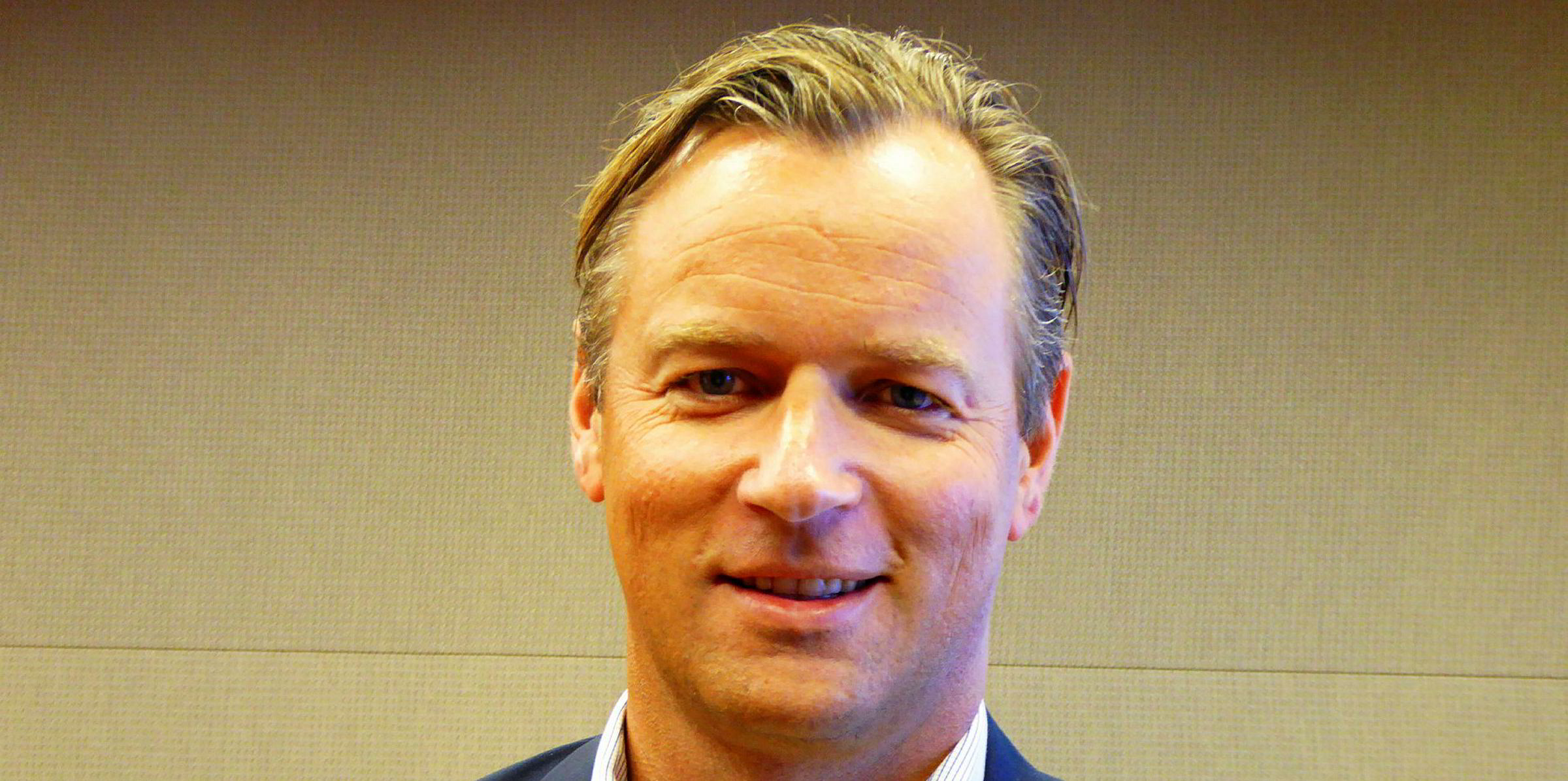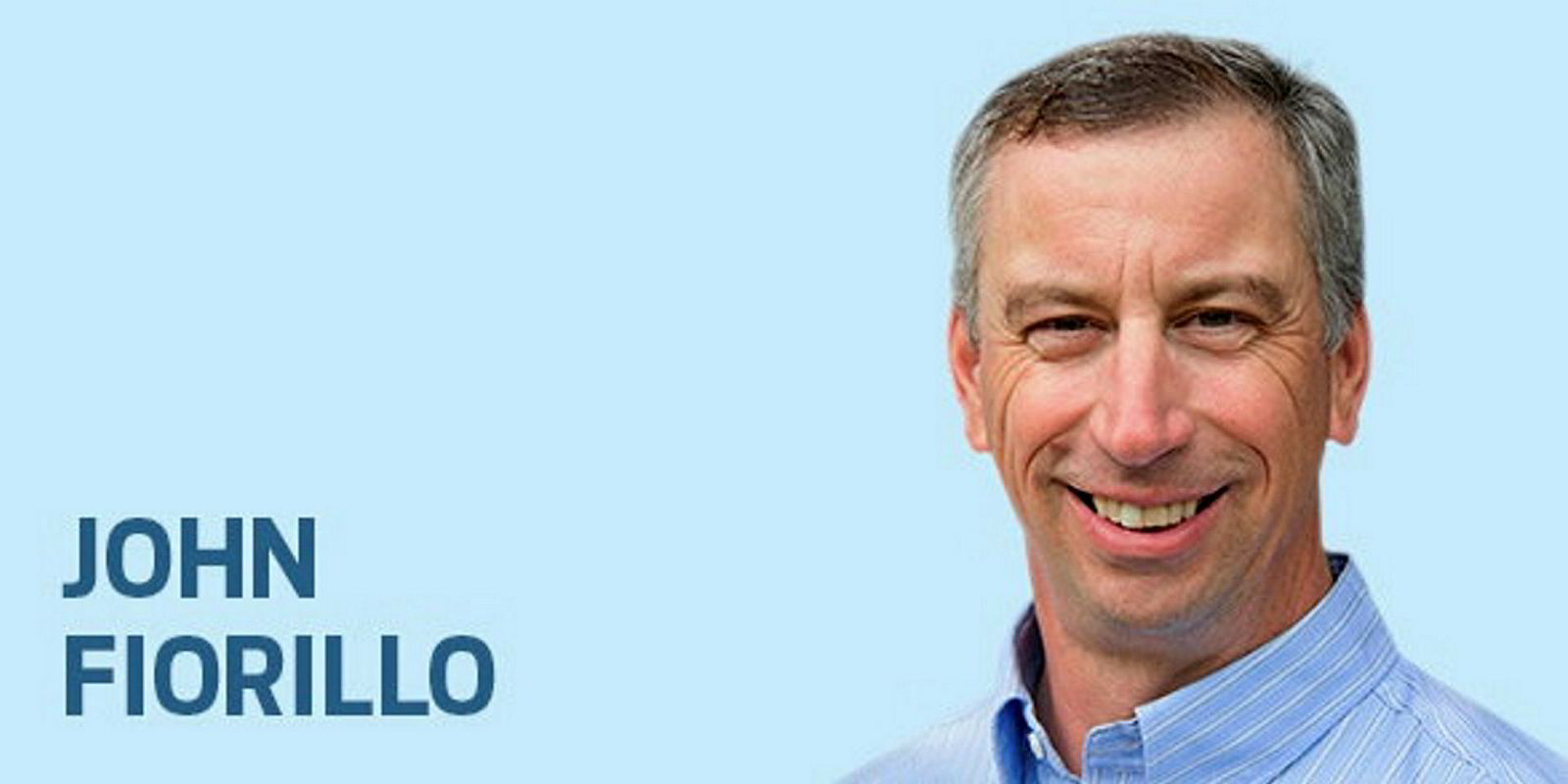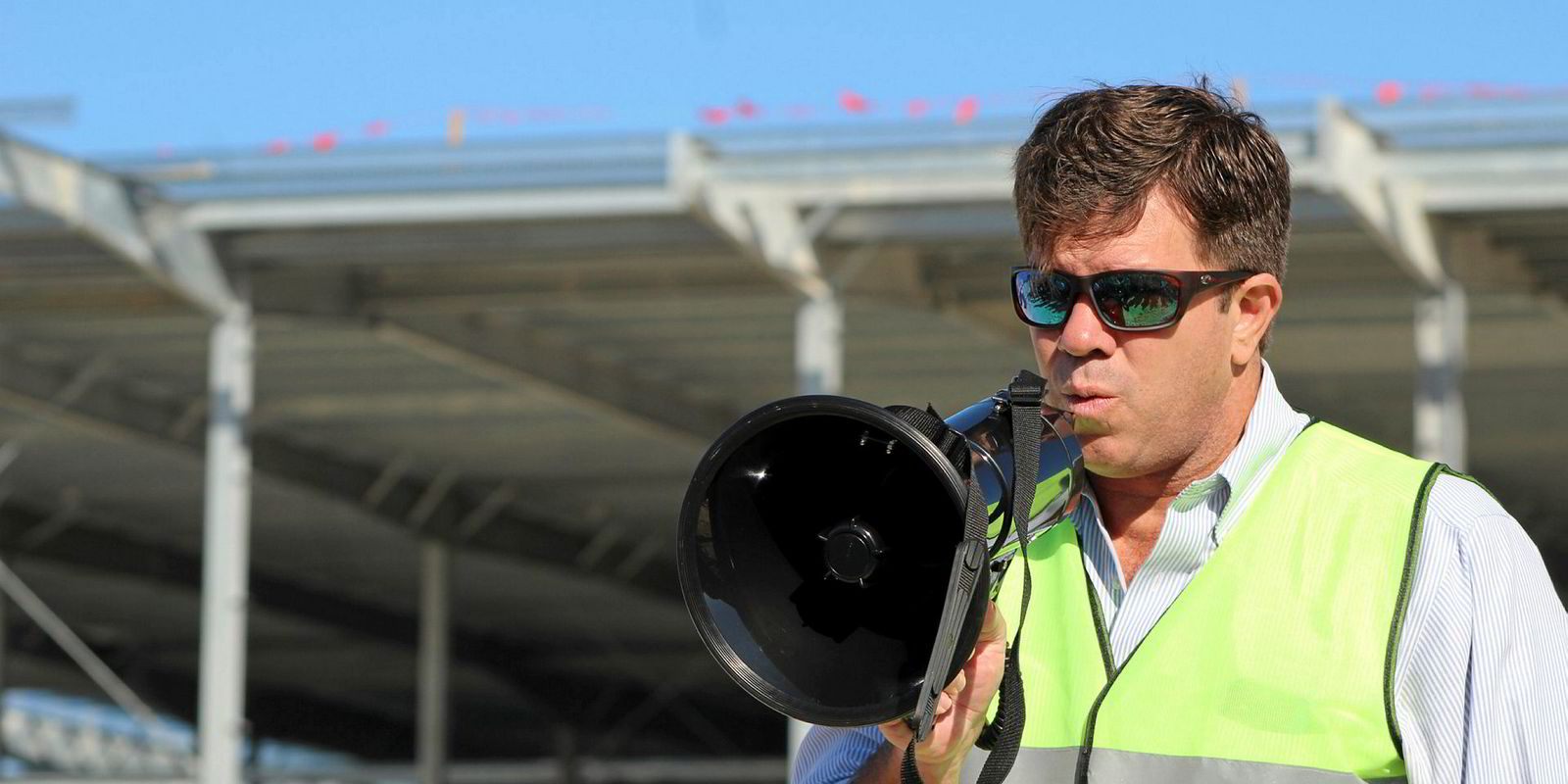Johan Andreassen, founder and CEO of land-based salmon farmer Atlantic Sapphire, was named the 2019 IntraFish Person of the Year at the Brussels Leadership Luncheon on Wednesday.
Andreassen has transformed opinion on what was once described by many as a financially nonviable option for future salmon production.
He was born in Alesund, Norway, in 1977 and began breaking ground early in the seafood industry as one of the first to fish wrasse as a teen from the Norwegian fjords.
In 1995 at the age of just 18 he founded Villa Leppefisk, the first company in Norway to introduce "cleaner fish" into Norwegian salmon farms as a method of fighting sea lice.
It wasn’t an easy battle – many had to be convinced this was a better method than traditional chemicals and medicines – but the need to prove something to those around him served him well when Villa Leppefisk grew to become organic salmon producer Villa Organic and, of course, later when he launched Atlantic Sapphire, one of the world’s first land-based salmon farming companies.
Andreassen says building Villa Organic was a lesson he “could not have learned at any university in the world.”
The company doubled its revenue every year from when Andreassen started to when he left, and he was exposed to enormous challenges in all aspects of doing business. “Everything from being part of developing organic standards for salmon to building up salmon farming in areas where no salmon farming had ever been done to dealing with investors and banks in a venture where most people didn’t believe the company could work,” he told IntraFish.
Andreassen applied all these lessons when he founded Atlantic Sapphire in 2010. “As I like to say we have done all the mistakes you can think of, but we have never done the same mistake twice."
In the months after leaving Villa Organic in late 2009, Andreassen and his cousin, with whom he founded the company, traveled the world visiting aquaculture facilities to learn the trends and challenges of the industry in a wider perspective.
The idea of establishing land-based salmon production came from a visit to Aquagen’s newly built land-based broodstock facility in Comao, Chile, in early 2010.
Growing pigs in the ocean
“I remember we had to fly a small, old plane next to an erupting volcano onto a mud airstrip on that island to get to the facility,” said Andreassen.
Inside Aquagen was keeping large salmon on land. The fish had been there since they were hatched and had good growth curves and low mortality.
“We almost could not believe what we saw,” said Andreassen. “And then the idea came. What if we could take this technology and develop it in a way so that we could make it economically feasible at commercial harvest size production and locate it in the USA - a market that depends to a very large degree on unsustainable airfreight for its fresh salmon consumption?”
It was, predictably, an idea that few initially got behind.
“Aside from a very few believers such as Steven Summerfelt and Brian Vinci [at the Freshwater Institute], many were laughing,” said Andreassen. “This is as natural as growing pigs in the ocean,” they said.
“I think the single largest milestone was in 2017 when we completed our first private placement to start construction in Miami," he said.
Overcoming challenges
But having heard similar doubts before they had moved Villa Organic into the icy waters of Eastern Finnmark on the Russian border, it did not scare them off.
Starting with a commercial pilot in Denmark and now rapidly building up facilities in Miami, the process has been anything but smooth sailing.
An outbreak of furnukulosis due to a water intake issue at its Danish facility in 2012 was the start of two years of working unsuccessfully to remove it from the system. Eventually, in 2014 Andreassen had to make the decision to harvest all the fish in the farm, disinfect and restart the operation after doing significant upgrades to avoid the same thing from happening again.
“At that time, we had to invest a lot of additional money on something that we weren’t 100 percent sure we were able to solve, and we were questioning if we were willing to do so, but we decided to roll up our sleeves and continue. From that point, we have never looked back even if we have also had significant setbacks thereafter.”
And it is this persistence and the support of “too many to name” along the way that has sustained Andreassen in his quest to develop a project too ambitious and novel for most to comprehend.
“I listen more than I talk. I like to discuss problems with team members before making key decisions. I expect 100 percent loyalty with the people I work with, and once a decision is made I expect 100 percent commitment to the solution and no excuses in execution," he said, summing up his management approach.




